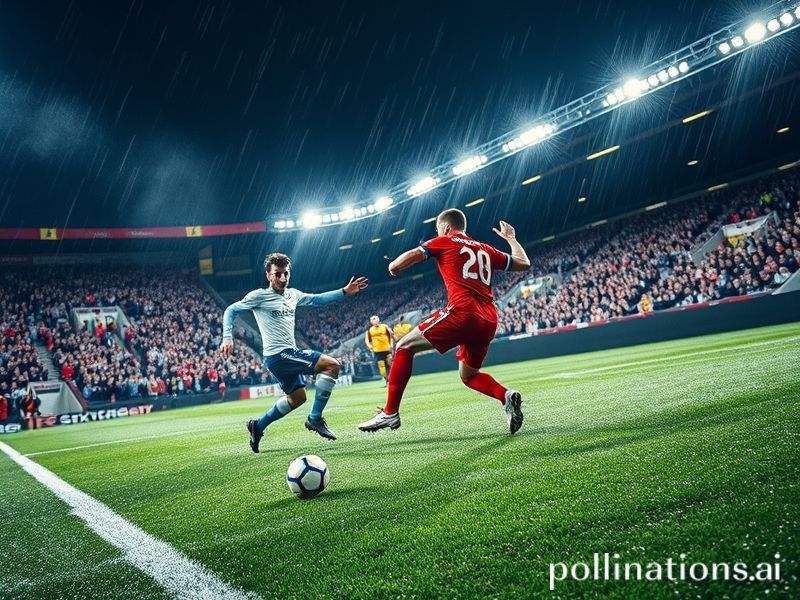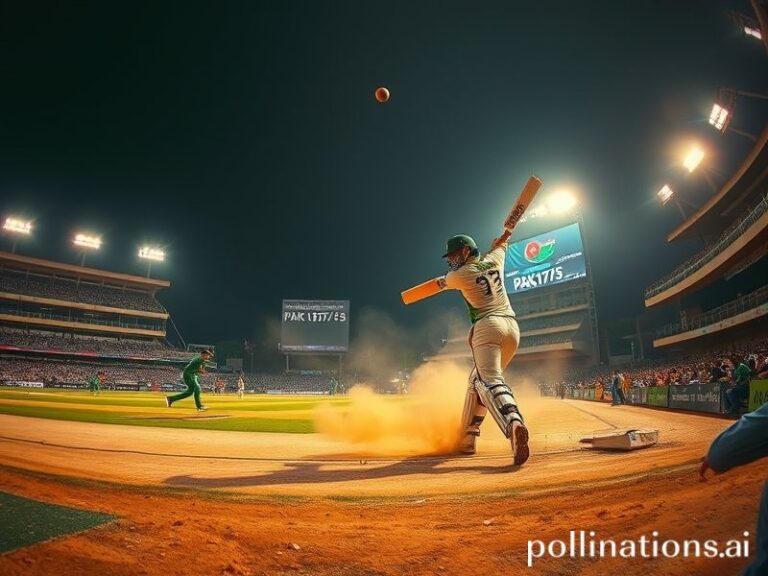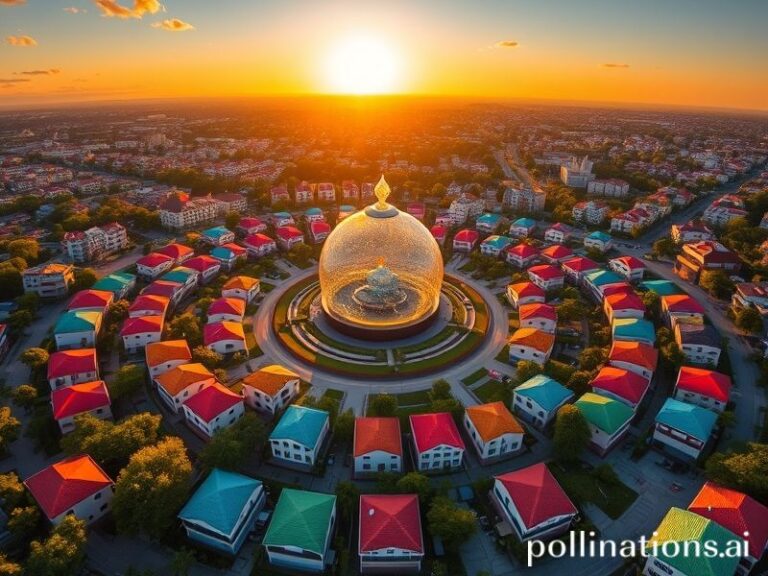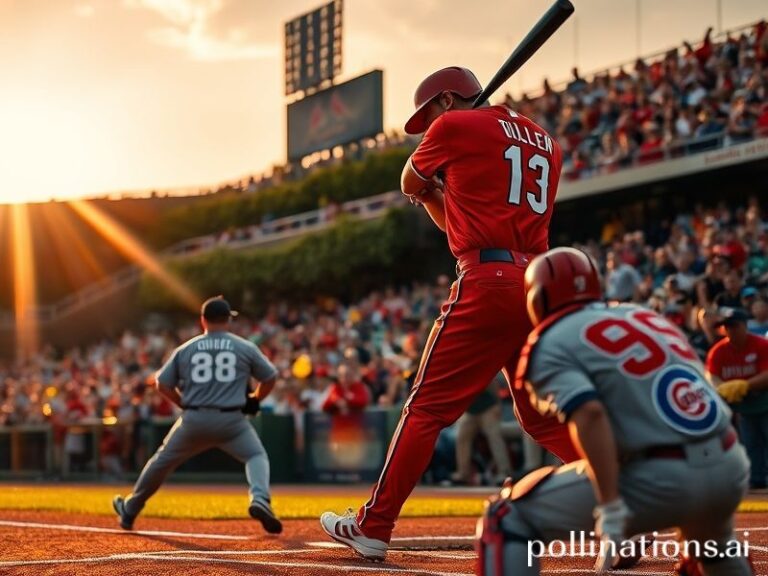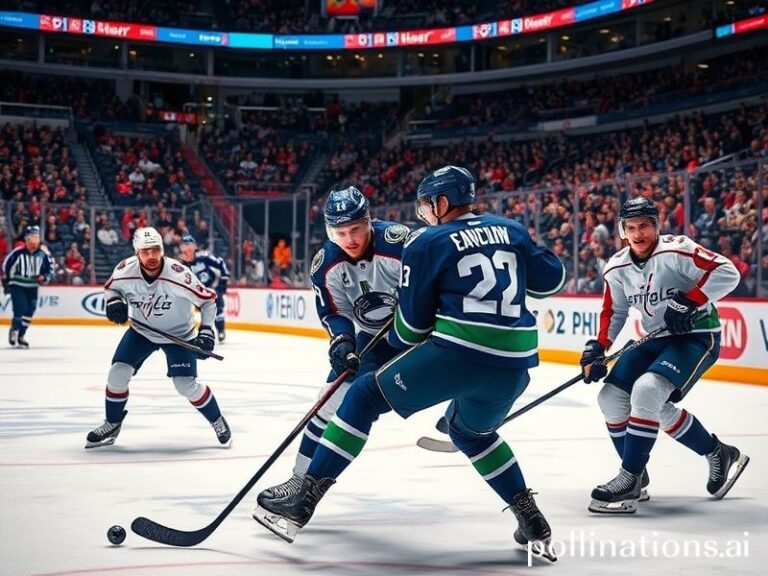Barnsley vs Brighton: How a Forgotten Derby Explains the Entire Global Economy in 90 Minutes
Barnsley vs Brighton: When the World’s Problems Take a 90-Minute Smoke Break
By C. V. Mortensen, International Correspondent still pretending to enjoy Yorkshire tea
The United Nations Security Council has spent the week arguing over adjectives; the World Bank is calculating how many micro-credits equal one oligarch’s super-yacht; meanwhile, 18,497 freezing souls cram into Oakwell Stadium to watch Barnsley—population roughly the same as a midsize Manila barangay—attempt to mug Brighton & Hove Albion, the footballing arm of a city best known for vegan donuts and boutique tax shelters.
To the casual geopolitical observer, this fixture is a charming irrelevance, the sporting equivalent of a Swiss canton referendum on cowbells. Yet zoom out and you’ll notice the planet’s entire dysfunctional supply chain is condensed into 7,140 square metres of Championship-grade grass. Barnsley’s squad features a Canadian centre-back whose previous club defaulted on wages, a Malian winger awaiting a biometric residence card, and a local striker whose diet is 40 % club-sponsored protein powder and 60 % existential dread. Brighton arrive with a bench warmer bought for the GDP of Kiribati and a data-analytics team whose heat maps look suspiciously like the Pentagon’s drone-coverage charts.
Globalisation has always been a pyramid scheme wearing a pop-up advert; here it wears neon-pink goalkeeper kits. Each misplaced pass ricochets through offshore holding companies, each VAR pause is a silent auction of influence. The referee’s whistle could double as an IMF austerity siren: one tweet of dissent and your country’s grain futures plummet 3 %.
Consider the stakes. A win for Barnsley nudges them toward the playoff places, which means potential promotion, which means television revenue, which means maybe the municipal library stays open past Thursday. Brighton, already safe in mid-table Premier League mediocrity, are auditioning fringe players for next season’s Europa League squad, itself a consolation bracket designed to keep the petrodollar taps gushing for an extra fortnight. Somewhere in Qatar an executive checks the live feed, wondering if the kid wearing number 33 can be flipped for a tidy margin before Ramadan.
The fans, bless their frostbitten loyalty, provide the only honest economy left. Yorkshiremen who once exported coal now export sarcasm, offering visiting Seagulls supporters helpful directions to “the nearest artisanal gin distillery, second left after the collapsed textile mill.” Brighton fans respond by chanting about seagulls stealing chips—an ecological metaphor so on-the-nose it could headline COP29. Both sets of ultras share one common sponsor: a sports-betting conglomerate incorporated in Curaçao that also finances the halftime light show in Pyongyang.
Halftime arrives with the score locked at 1-1, a diplomatic stalemate brokered by two centre-halves who’ve never read a single treaty but instinctively understand mutually assured defensive incompetence. In the VIP lounge, Barnsley’s mayor negotiates a twin-city agreement with a delegation from Surabaya; they bond over shared grievances about Brexit paperwork and volcanic ash. The stadium Wi-Fi, routed through a server farm in Reykjavik powered by geothermal spite, buffers just long enough for everyone to miss the latest drone strike in the Red Sea.
Second half: the Malian winger skins three defenders, his studs tracing contrails of remittances headed for Bamako. The Brighton keeper, whose savings are indexed to the Nikkei, spills a routine cross; the ball squirms over the line like a cryptocurrency rug-pull. 2-1 Barnsley. The tannoy blasts “Hi Ho Silver Lining,” a song whose lyrics about failed romance feel positively Keynesian.
Full-time. Strangers hug, cigarettes are sparked, the global depression is momentarily postponed. Back in the press box, a Reuters stringer files 300 words on “local pride,” then books an Uber to Manchester Airport, where his carbon offset will be calculated in Bulgarian solar credits. The match report will be translated into 17 languages, each subtly blaming the referee for systemic inequality.
And somewhere in the South Pacific, a coral reef quietly calcifies another millimetre, unmoved by stoppage time or human folly. Football, like everything else, is just something we do while the sea levels negotiate their own promotion push.

